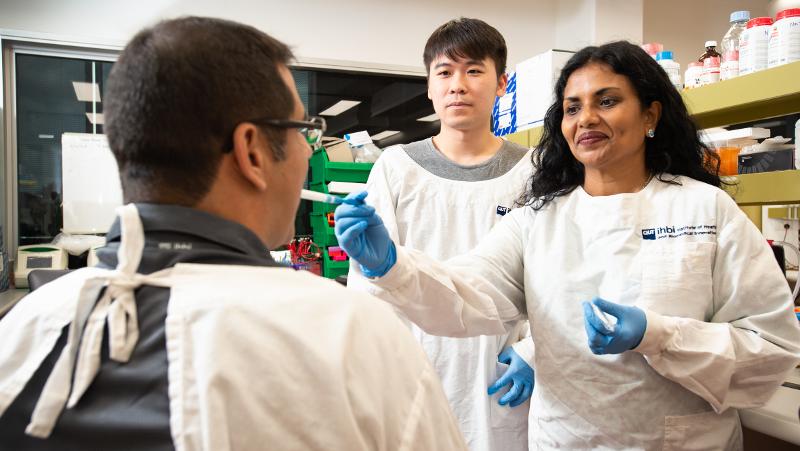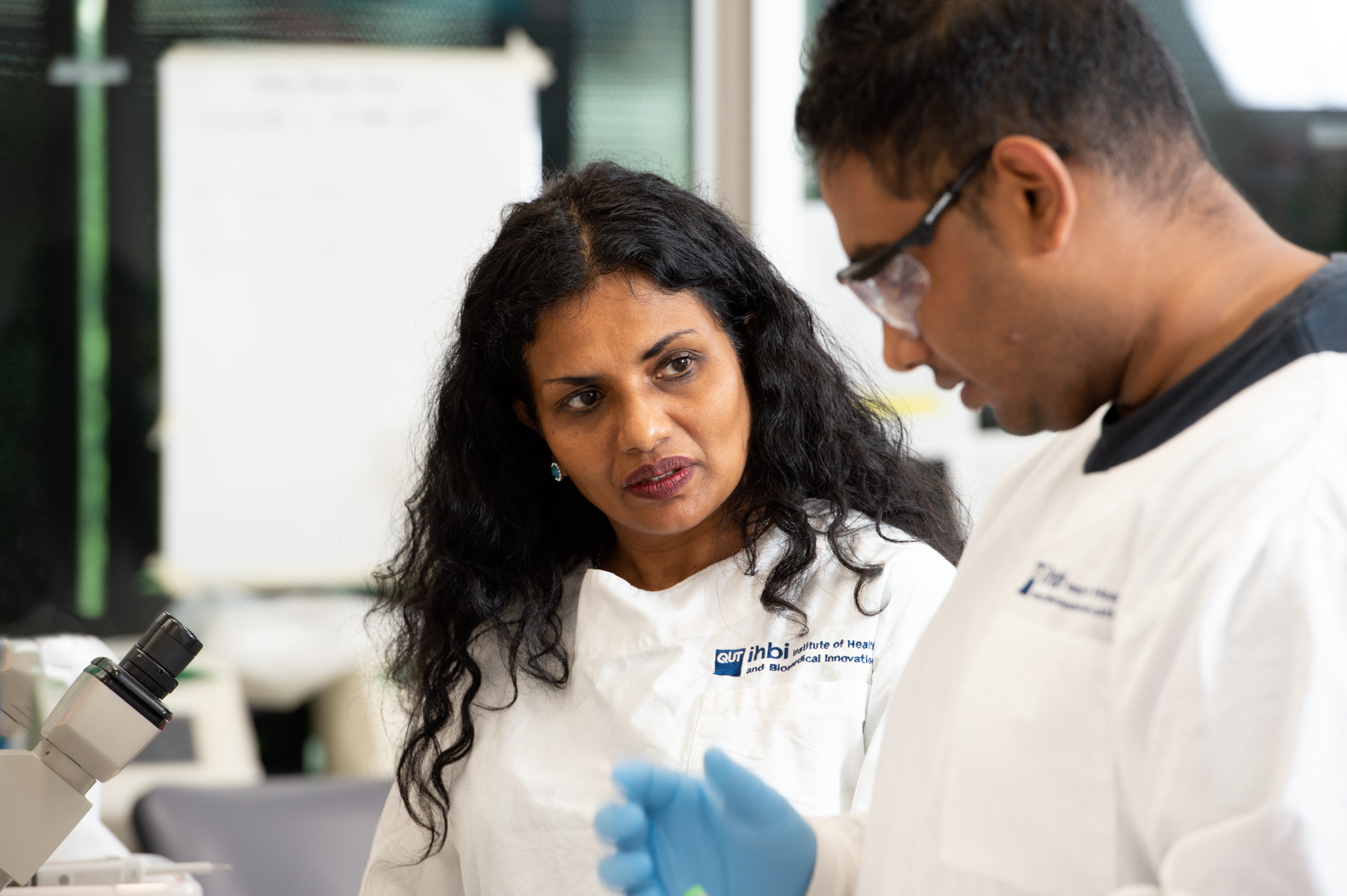
Saliva is close to becoming the next big thing in non-invasive diagnostics for a variety of conditions from heart failure to head and neck cancers, says Associate Professor Chamindie Punyadeera from QUT’s Institute of Health and Biomedical Innovation.
“Head and neck cancers are a cluster of cancers that are classified as ‘rare cancers’ because fewer than 6 in 100,000 people get it,” Professor Punyadeera said.
“They can occur in the mouth, lips, throat, nasopharynx, or windpipe. What we do know is there are a variety of risk factors, from diet and alcohol and smoking to infection, reflux and the chewing of betel nut, and many occur with no known cause.
“It is vital that we develop ways to detect these cancers early and because they are so close to the mouth, utilising saliva as an early detector makes sense.
“If we can detect these cancers at stage one or the early stage, the person has an 80 per cent chance of survival. Unfortunately these cancers are often asymptomatic, until it is too late, so we need an easy, quick and affordable way to screen people at risk of developing one of these cancers.
“Our research is currently looking at saliva diagnostics for two different risk factors for head and neck cancers – human papilloma virus (HPV) infection which is associated with throat cancer, and another test to assess smokers’ risk of mouth and throat cancer.”

Carly Mulheran is a young woman who knows the importance of early detection of head and neck cancers.
Ms Mulheran tragically lost her young partner Jake Simpson to tongue cancer, which was discovered at a late stage with no confirmed cause.
To fulfil Jake’s wish, she has donated $20,000 to support new saliva diagnostic techniques being developed by Professor Punyadeera and her research team.
“I chose this area of research as I thought it was the best non-invasive way to help detect the cancer before it gets too bad,” Ms Mulheran said.
“Early detection and research is needed to help make sure other families don't lose their loved ones like our family has. If we can find head and neck cancers at stage one then patients have a better prognosis and a longer life.”
Professor Punyadeera aims to conduct a trial of a ‘swish and gargle technique’ for collecting saliva to test HPV in the mouth, one of the risk factors for throat cancer.
“If a person has persistent HPV infections it can indicate they are at-risk of developing a HPV positive head and neck cancer,” she said.
“We know that HPV infections can lead to throat cancer but we don’t know when – that’s why we need an affordable, easy way to screen health people for this cancer-causing virus.
“The swish and gargle test picks up cells infected with the virus to tell us whether the person is at higher risk or at lower risk of developing throat cancer.
“The test could be done twice a year and those found to be at-risk could have an endoscopy to check for developing cancer.”
Professor Punyadeera and her research team are looking to raise $300,000 for a trial of the new saliva test on around 50 people who are immune-compromised and could be at high-risk of developing an HPV-related throat cancer.
“We want to monitor their condition over two years so that we can work out the prevalence and incidence of head and neck cancer following persistent HPV infections,” she said.
Donations can be made through the QUT Giving Day page.
QUT Media: Rose Trapnell, media@qut.edu.au or 0407 585 901




